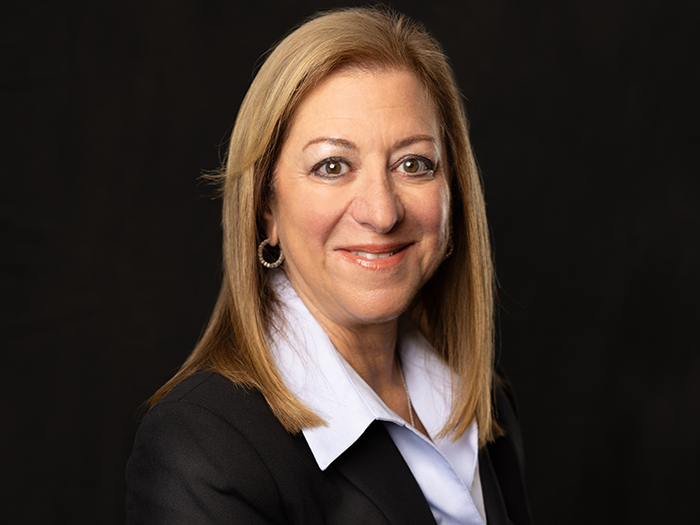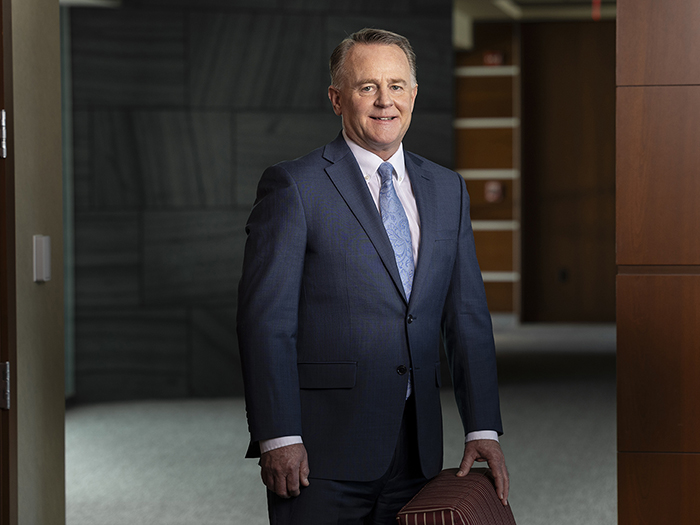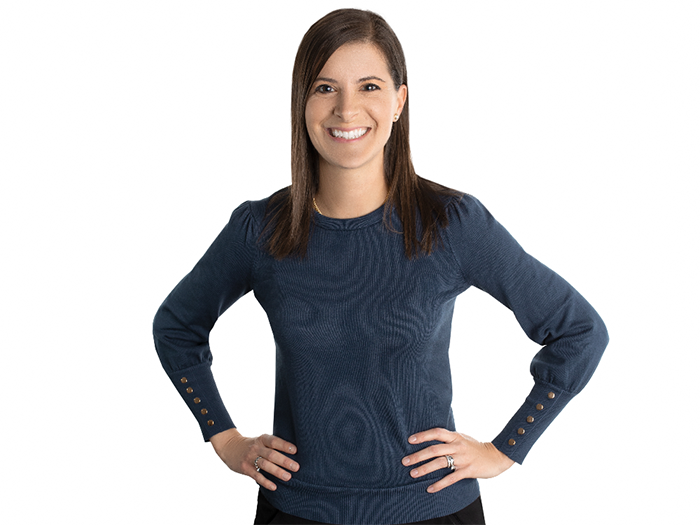One Call’s Michele Haas on Balancing Growth, Value and Patient-Centric Care

In a recent discussion, Michelle Kerr, workers’ comp editor at Risk & Insurance, caught up with Michele Haas, recently appointed as CFO of One Call. A seasoned professional with extensive experience in health care finance, Haas shared her vision for the company’s financial future, emphasizing the strategic integration of AI and automation in health care. Our conversation touched on the importance of talent and human capital in driving the company’s mission to deliver exceptional patient care.
What follows is a transcript of that conversation, edited for length and clarity.
Risk & Insurance: Now that you’ve had a couple of months to get a handle on the full picture, what is your vision for shaping the company’s financial strategy in the coming years?
Michele Haas: When I think about the years ahead, I envision a future where adaptability, resilience and innovation are at the forefront of One Call’s financial strategy. Like many companies, this includes digital transformation. Continued investments in AI, automation and data analytics will help us gain better insights for business decisions and positively impact the customer experience.
Another critical pillar of our success is ensuring we have the right people on board — colleagues equipped with the proper training and tools — across the organization. Growth and retention are foundational elements of our business. Working together with teams, such as growth and provider contracting, is crucial to our ability to provide the very best care coordination possible.
In the end, there’s a finite amount of capital dollars we can invest. Working with the entire executive committee, we are constantly evaluating the delicate balance between growth investments and value for our shareholders. And of course, central to any decision we make is our continued commitment to getting injured workers the care they need when they need it.
R&I: What excites you about bringing experience from other aspects of health care to workers’ compensation?
MH: I find it truly exciting to utilize my extensive knowledge and perspective from other health care sectors to improve outcomes for injured workers. We should be looking for every opportunity to leverage the successes — and learn from the challenges — in other health care arenas to drive progress in workers’ compensation.
R&I: What financial trends are you observing that impact the workers’ compensation industry — either positively or negatively — and how do you see these trends influencing your planning and strategic decisions with your team?
MH: As I gain a better understanding of the workers’ compensation space, I have observed several financial trends. Streamlining processes and investing in technology, for instance, are critical for efficiency and growth.
The rising cost of health care and changing workforce dynamics (such as remote work) present challenges that require strategic navigation.
Regulatory trends, whether legislative or state-specific, can impact how we do business in each individual state. Staying informed and paying attention to these dynamics is crucial.
Lastly, many companies are implementing risk management strategies and safety programs that lead to fewer workplace injuries and claims. While this is a positive development, it could negatively impact volume and growth.
R&I: What qualities do you believe will help you best foster a culture of innovation and accountability in your team at One Call, given your extensive experience leading teams across various health care organizations?
MH: Since joining One Call, I have been incredibly impressed with the commitment, talent and tenure of the team. Twenty-five percent of One Call colleagues have been with the company more than 10 years. There are members on the financial team who have more than 15 years of experience. I am working with a team that possesses tremendous knowledge.
My leadership style is centered around empowerment, collaboration, setting clear expectations and promoting open communication. High integrity and strong ethical standards are also cornerstone to my approach — two qualities that are especially crucial in financial roles.
In terms of collaboration, I encourage my team to stretch beyond our financial team. Rather than simply reporting out results to our business partners, I push them to be visionaries, looking for and suggesting ways to help the company achieve its strategic goals.
Most importantly, I am dedicated to recognizing talent and celebrating success, as I believe this approach contributes to a highly motivated, accountable team. Throughout my career, I have mentored and developed staff from the analyst level all the way up to CFO positions. By investing time and effort into mentoring, I play a key role in helping people reach their highest potential and achieve their goals, which is highly rewarding.
R&I: What excites you most about your first few years at One Call in terms of the company, culture and people you are getting to know?
MH: I am incredibly excited about how One Call lives its values. I have never seen a company embody its values so authentically. Our values — think big, go fast, deliver awe and win together — resonate throughout the entire organization. You can feel the passion in how we recognize and celebrate employees who exemplify these values.
Additionally, I see tremendous opportunities for improvement in how we serve injured workers. We have a powerful combination of tenured, institutional knowledge and fresh, innovative ideas from the broader health care sector. This unique blend of perspectives affords us many different avenues for strategic improvement and future direction. I am really excited about what lies ahead for One Call.
R&I: What technology initiatives are you exploring for the near future?
MH: There are several technology advancements underway at One Call that focus on enhancing efficiency, consistency, and the customer experience.
We are currently working to automate the authentication process used to verify a customer’s identity. Another area we are looking to advance is the automation of appointment confirmations. Over the last year, we have also implemented technology that scores calls based on a customer service representative’s empathy and service levels, enabling targeted coaching and feedback to improve the customer experience.
Additionally, I see opportunities to improve revenue cycle management, which differs slightly from traditional health care claims and collections. While I don’t have specific details yet, I believe this area is ripe for innovation and efficiency improvements.
R&I: Can you tell me a bit more about empathy scoring and the practical applications you see for it in the industry?
MH: Empathy scoring, also known as sentiment scoring, is an intriguing development in our field. While I haven’t had extensive hands-on experience with it yet, I’m eager to explore its potential applications.
One Call is always looking for innovative ways to enhance our services and better understand our customers’ needs. Empathy scoring could provide valuable insights into how we can tailor our interactions to create more meaningful connections.
I’m particularly interested in learning how it can help us identify and address the unique challenges and emotions our customers face. By leveraging empathy scoring, we may be able to offer more personalized support and build stronger relationships with those we serve.
R&I: What’s the secret sauce to building strong relationships with stakeholders in your role?
MH: Building stakeholder relationships involves a blend of personal connection, credibility and active engagement. I always try to establish a personal connection by discussing topics like family and finding common ground. This helps create a foundation for the professional relationship.
Credibility is key, and I strive to build it through transparent communication. I proactively initiate meetings with stakeholders to keep them informed about our strategic initiatives. This allows them to think ahead about how they can best work with us.
Being responsive and providing accurate, tailored information is crucial. I keep in mind that stakeholders have their own audiences to report to, so I aim to deliver what they need in a timely manner. Putting myself in their shoes helps me understand their requirements better.
Lastly, I try to attend events that are important to them, such as charitable functions. This shows support and strengthens the personal aspect of the relationship. Over the years, I’ve built solid, long-lasting connections with key stakeholders, including audit firms and bankers, by consistently applying these principles.
R&I: What can you tell us about your involvement in women’s executive leadership and advocacy groups within the industry?
MH: Throughout my career, I have been fortunate to have outstanding mentors, both women and men, who have taken the time to guide me. Many of them remain great friends today. This has led me to be very passionate about promoting gender parity and helping women realize their potential.
I am an active participant — and former board member — of Women’s Executive Leadership, an organization founded about 25 years ago by a dear friend and colleague. The organization offers networking opportunities, mentorship programs and professional development resources to help women advance in their careers and attain executive positions across various industries.
As a member of Women’s Executive Leadership, I have had the chance to connect with and learn from other successful women leaders. I have also been able to share my own experiences and insights to empower other women in business.
I am currently excited about getting involved with the One Call Women’s Impact Network, which will allow me to contribute to mentorship. Despite the high percentage of women in health care, I believe there is still tremendous opportunity for growth and advancement, and I look forward to developing women within One Call and the workers’ compensation industry. &








